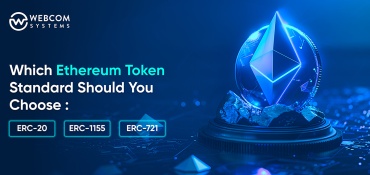What is Blockchain Technology?
The Blockchain is a decentralized ledger of all transactions across a peer to peer network. Using this technology, participants can confirm transactions without the need for central certifying authority. And it is the technology that enables the existence of cryptocurrency (among other things) Potential applications include fund transfers, selling trade, voting, and many other uses.
What is Cryptocurrency?
A cryptocurrency is a medium of exchange which is created and stored electronically in Blockchain using encryption techniques to control the creation of monetary units and to verify the transfer of funds. Bitcoin and Ethereum are the best-known examples of cryptocurrency.
Traits of Cryptocurrency:
1. It has no physical form and exists only in the network.
2. It has no intrinsic value i.e it is not redeemable for other currencies
3. Its supply is not determined by a bank and the network is completely decentralized.
How Blockchain Works? (Infographics)
Infographic Source: How blockchain works: An infographic explainer
The technology idea behind the Blockchain is similar to that of a database, except the way you interact with the database is different. So, let’s understand the concept of how it works:
Someone requests a transaction.
1. The requested transaction is broadcasted to P2P network consisted of computers known as nodes.
2. Validation: The network of nodes validates the transaction and the user’s status using known algorithms.
3. A verified transaction can include cryptocurrency, contracts, records or other information.
4. Once verified, the transaction is linked to other transactions to create a new block of data for the ledger.
5. The new block is then appended to the existing Blockchain, in a way that is permanent and unalterable.
6. The transaction is finally complete.
Why is it so revolutionary?
Blockchain technology can operate for almost every type of transaction including money, goods, and property. Its potential uses are virtually endless: from managing taxes to enabling migrants to send money to their families in countries where the banking system is terrible.
Blockchain can also help to lessen frauds every transaction is recorded and distributed on a public ledger for anyone to see.
Potential Applications:
Blockchain also has potential applications far behind Bitcoin and other cryptocurrencies. Let’s have a look
1. Automotive: Consumers can use the Blockchain to manage fractional ownership in autonomous cars.
2. Financial Services: Faster and cheaper settlements can save billions of dollars from transaction costs while improving transparency.
3. Voting: Using Blockchain codes, a constituent can cast votes via smartphone, tablet or computer, resulting in immediately verifiable results.
4. HealthCare: Patients encrypted health information can be shared with multiple providers without the risk of privacy breaches.
Who is Using it?
In theory, if Blockchain goes mainstream, anyone with access to the internet would be able to use it to make transactions. Currently, only a tiny proportion of global GDP (around 0.025%, or $20 billion) is held in the Blockchain, according to a survey: by the World Economic Forum’s Global Agenda Council.
The Forum’s research suggests this will increase significantly over the next decade, as banks, insurers and tech firms perceive the technology as a means to speed up contracts and cut costs.
Companies pursuing to adapt Blockchain include UBS, Microsoft, IBM, etc. The Bank of Canada is also exploring technology.
Wrapping Up:
Overall, Blockchain technology has the potential to transform several industries from advertising to energy distribution. The main innovation is that the technology enables market participants to transfer assets across the internet without the requirement for a centralized third party.
From a marketing perspective, it’s helpful to consider Blockchain technology as a type of next-generation business process of improving the software. Collaborative technology, such as Blockchain, promises the ability to enhance the business processes that happen between the companies, radically lowering the “cost of trust.”
And that’s all about Blockchain technology. If you have any queries or feeling something left behind, please comment below now. We will be happy to answer all of your questions related to it.





